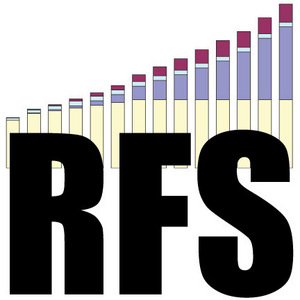AAA, API continue call for lower RFS standards

October 28, 2013
BY Erin Krueger
AAA recently issued a statement urging the U.S. EPA to include lower mandates for ethanol in its proposed rule for the 2014 renewable fuels standard (RFS), claiming that higher ethanol blends could damage engines. However, representatives of the ethanol industry are speaking out to dispute the information presented by AAA.
“It is just not possible to blend the amount of ethanol required by current law given recent declines in fuel consumption, and it is time for public policy to acknowledge this reality,” said Bob Darbelnet, president and CEO of AAA in an Oct. 25 statement. “The EPA should lower ethanol targets immediately as part of the proposed 2014 RFS rule to support consumers and promote alternative fuels.”
In its statement, AAA also claimed that if the RFS standards are set to high, blenders unable to meet its requirements would either be incentivized to export gasoline or would be required to face fines. The AAA claims consequences would increase gas prices. While the use of E15 would allow obligated parties to meet the mandate, the AAA continues to claim the fuel blend will damage engines.
Advertisement
The Renewable Fuels Association has spoken out to dispute the AAA’s claims. “AAA needs to stop being the puppet of Big Oil, and put consumers first,” said Bob Dinneen, president and CEO of the RFA. “The Energy Department and more than 40 studies say that more than 60 percent of cars on the road today can safely use E15. More than 40 million miles have been driven on E15 without a single complaint. If Big Oil – and AAA – would stop obstructing consumer choice, American drivers could have access to a choice of higher level ethanol blends that are less expensive, yet higher in octane.”
Dinneen added that the RFS is the most effective energy policy the U.S. has, noting that 2014 requirements could easily be met by the marketing of E85 and E15, as well the use of reserve RINs. “The RFS has proven to lower our dependence on foreign oil, lower greenhouse gas emissions, and has created and supported over 300,000 jobs across this country,” Dinneen added. “These demonstrable reasons are exactly why state chapters like South Dakota AAA stand by it and have rejected the oily political posturing of national AAA leadership.”
Advertisement
AAA isn’t the only organization asking the EPA to lower the 2014 RFS requirements. On Oct. 24, the American Petroleum Institute called for EPA to lower ethanol mandates in the 2014 RFS “in order to protect consumers and our economy from a looming disaster until Congress can repeal the program once and for all.” According to Bob Greco, API downstream group director, his organization has asked the EPA to set the 2014 ethanol requirements at or below 9.7 percent of projected gasoline demand, or about 12.9 billion gallons.
Greco also noted that the API is prepared to file suit in the event the EPA misses its statutory Nov. 30 deadline to finalize the 2014 standards.
Related Stories
Saipem has been awarded an EPC contract by Enilive for the expansion of the company’s biorefinery in Porto Marghera, near Venice. The project will boost total nameplate capacity and enable the production of SAF.
Global digital shipbuilder Incat Crowther announced on June 11 the company has been commissioned by Los Angeles operator Catalina Express to design a new low-emission, renewable diesel-powered passenger ferry.
International Air Transport Association has announced the release of the Sustainable Aviation Fuel (SAF) Matchmaker platform, to facilitate SAF procurement between airlines and SAF producers by matching requests for SAF supply with offers.
Alfanar on June 20 officially opened its new office in London, further reaffirming its continued investment in the U.K. The company is developing Lighthouse Green Fuels, a U.K.-based SAF project that is expected to be complete in 2029.
ATR and French SAF aggregator ATOBA Energy on June 19 signed a memorandum of understanding (MOU) to explore ways to facilitate and accelerate sustainable aviation fuel (SAF) adoption for ATR operators.
Upcoming Events










